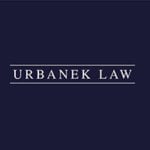-
Overview
Japan is one of civil law jurisdictions with a unified court system. Whilst the courts can exercise some discretion to achieve an equitable outcome, Japan does not have separate equity courts. Real estate-related laws are generally nationally applicable.
Ownership right (absolute interest similar to fee simple interest) is recognized as the primary right in real estate under the Civil Code. The holder of the ownership right has the right to use, possess and dispose of the real estate. Land and buildings are construed as separate, different types of real estate, and ownership of the land and ownership of buildings constructed on that land can be dealt with independently.
Leasehold rights are also common in Japan. Leasehold rights are regulated by the Civil Code and the Act on Land and Building Leases, which is quite favourable to lessees. For example, under this Act, subject to certain exceptions, a lessor is not permitted to refuse a lessee’s request for lease term renewal unless the lessor can demonstrate a justifiable reason for its refusal (under Japanese case law, the concept of ‘justifiable reason’ has been construed quite narrowly).
Japan has a nationwide real property registration system for matters such as the conveyance of ownership or other rights over real property, with registration being required for that conveyance to be perfected. Registration generally only has the power to perfect interests, and interests can be created without registration.
-
What is the main legislation relating to real estate ownership?
Ownership is regulated by the Civil Code. A real estate owner is entitled to use, profit from and dispose of that real estate in accordance with the Civil Code.
The Civil Code also governs co-ownership, which is a mean by which real estate may be owned by more than one person. In order to allow a building to be owned by more than one person without using co-ownership, the owners can subdivide one building into condominium units (by satisfying certain conditions that each condominium unit has certain independence from the others). The unit ownership is subject to the Act on Building Unit Ownership, etc. as well as the Civil Code.
The Real Property Registration Act governs the registration procedures for the preservation of and the transfer of real estate ownership and the establishment of mortgages and other rights over real property. Registration does not guarantee the existence (or non-existence) of interests but is necessary to perfect a preservation, transfer or establishment of interest.
-
Have any significant new laws which materially impact real estate investors and lenders come into force in the past year or are there any major anticipated new laws which are expected to materially impact them in the near future?
No significant new laws which materially impact real estate investors and lenders have come into force since December 2024.
However, the amendment to the Act on Building Unit Ownership, etc. (“Condominium Law”) has been enacted and will come into effect on April 1, 2026.Under the Condominium Law, a part of a building that is independent from other parts of the building both in respect of its function and structure may be independently owned. Those parts that have become independently owned are called condominium units (senyu bubun), and the fact that a condominium building is divided into condominium units can be registered in the real property registry. Thereafter, a separate real property registry will exist for each condominium unit, thereby allowing separate and independent registration of ownership of and encumbrances on each condominium unit.
Matters relating to the management and use of a condominium building are governed by the Condominium Law and the management regulations agreed upon among the owners of the condominium units of the condominium building. Under the Condominium Law, certain important matters regarding a condominium building shall be approved by a resolution at a meeting of condominium unit owners, which approval requires affirmative votes both in terms of percentage of voting rights determined based on the size (square metreage) and in terms of the number of condominium unit owners depending on the subject matter.
Since such resolution requirements are difficult to meet and often prevent smooth management, repair and rebuilding of the condominium building, the resolution requirements have been partially relaxed under the amended law. For instance, prior to the amendment, the denominator for calculating whether the resolution requirements were satisfied was based on the total number and voting rights of all condominium unit owners. However, following the amendment, unit owners who do not exercise their voting rights can be excluded from the denominator, making it possible to pass resolutions without the cooperation of those who are uninterested in the management of the condominium building. Such an amended calculation method of the denominator for the resolution requirements does not apply to resolutions for the rebuilding, but, under the amended law, the resolution requirements for rebuilding in case of safety concerns or other specific circumstances have been relaxed. The amended law will make easier to invest in older condominium buildings, since it will be easier to manage, repair and rebuild them.
-
How is ownership of real estate proved and are ownership records available for public inspection?
While there is a nationwide real estate registration system in Japan, the real estate registry does not necessarily reflect the true holder of the title or right. Rather, the perfection of a right over real property is done by registration in the real estate registry.
Registration is not conclusive evidence of ownership, as mentioned above, but it is practically understood that the real estate registry serves as strong evidence of ownership because it is practically the best indication of the true owner. The real estate registry is open to the public. To perform a title search in Japan, one will typically order and examine a certified copy of the real estate registry. It is common to use the services of a real estate broker or a lawyer to assist in this.
There is no practice to use title insurance, legal title opinion, or indemnity funds.
-
Are there any restrictions on who can own real estate, including ownership by any foreign entities?
Generally, there are no restrictions on persons, including foreign entities, owning real property in Japan. Under the Foreign Exchange and Foreign Trade Law, there is a post facto reporting requirement that must be filed with the Ministry of Finance, through the Bank of Japan, for certain types of acquisitions of ownership rights or other rights in real property by non-residents. We also note that under the Act on the Review and Regulation of the Use of Real Estate Surrounding Important Facilities and on Remote Territorial Islands, the government has the authority to designate “monitored areas” and “special monitored areas” in the vicinity of important facilities such as defense-related facilities, and can investigate and regulate the use of real estate within such areas.
-
What types of proprietary interests in real estate can be created?
In Japan, there are the following main types of proprietary interests in real estate:
- Ownership (absolute interest similar to fee simple interest) is the primary right in real estate. Ownership entitles the owner to use, possess and dispose of its real estate assets at its sole discretion for an indefinite time;
- Co-Ownership is a form of ownership that can be held by multiple persons; and
- Unit Ownership is a form of ownership that may be held by a condominium owner separately from other condominium owners in the same building.
Leasehold rights, which entitle the tenant to possess and/or use real estate, can be created by a contract. Generally, there is no requirement regarding the formality of the lease contract except for certain types of leases that provide for fixed terms.
-
Is ownership of real estate and the buildings on it separate?
Ownership of land and buildings is separate, and ownership of the land and ownership of buildings constructed on that land can be dealt with independently. Where a building on land is owned by a party that is different from another party that owns that land, the owner of the building needs to have leasehold rights or other legal grounds to own that building.
-
What are common ownership structures for ownership of commercial real estate?
Commercial real estate can be held by individuals or through entities. High-value real property is typically held through specifically created structures. Common ownership structures include:
- Incorporated entities;
- Trusts; and
- J-REITs (Japanese real estate investment trusts).
Incorporated entities, such as joint-stock companies (KKs), limited liability companies (GKs) and a specified purpose entity (or tokutei mokuteki kaisha (TMK) established under the Act on the Securitization of Assets), which provide limited liability to their shareholders, are the most common. Foreign corporations are also recognised and can be used as investment entities by first registering a branch office in Japan.
In order to reduce transaction tax costs, it is common in commercial real estate transactions to place the real property in trust, and to thereafter transfer the rights to that real property in the form of a trust beneficiary interest.
The J-REIT is a closed-end structured collective investment scheme utilizing an investment vehicle (toushi houjin) incorporated under the Act on Investment Trusts and Investment Corporations. Since a J-REIT is considered a conduit vehicle which conducts investment activities on behalf of investors, it is generally subject to a single level of tax and not the double level of tax. More precisely, the J-REIT is permitted to include the distribution of profits to its unitholders as expenses for the purpose of calculating its corporate tax, provided that certain requirements are satisfied.
In the real estate financial market, it is common to use a GK-TK structure and a TMK structure to achieve pass-through tax treatment. The GK-TK structure is one under which a GK (TK operator) acquires real estate beneficiary interests in trust with funds that are invested by an investor (TK investor) and the investor receives profits and losses from the target asset in accordance with a silent partnership agreement (Tokumei Kumiai keiyaku; TK agreement). In addition, a TMK can also constitute a tax pass-through entity (although only with respect to profits), if it satisfies certain criteria.
Foreign investors generally prefer the TMK arrangement, as it is believed that Japan’s tax authorities are less likely to challenge the legitimacy of a TMK’s pass-through tax treatment. In the case of the GK-TK structure, it is possible that the Japanese tax authorities may challenge the pass-through tax treatment by re-characterising the TK as an ordinary partnership arrangement, which would result in the foreign investor being deemed to have a permanent establishment in Japan, thereby resulting in more taxes being imposed on the foreign investor. A tax specialist should be consulted for details on the application of Japanese tax on these investment structures.
-
What is the usual legal due diligence process that is undertaken when acquiring commercial real estate?
For large-scale real estate transactions or high-value real estate transactions, it is common to have an engineering company review the legality of the structure, use, and occupancy of the relevant real estate, and, further, to have a law firm perform a legal due diligence investigation.
The process of legal due diligence to be conducted by the potential purchaser’s counsel is generally as follows:
- to determine the scope of legal due diligence;
- to request the seller to disclose due diligence information and materials in relation to the target property;
- to ask the seller queries based on the due diligence packages; and
- to report the result to the potential purchaser.
The scope of legal due diligence typically includes a review of interests and encumbrances on the target property, lease agreements, any other related agreements regarding the property (including property management agreement), regulations applying to the property, lawsuits, and other similar issues. Although the scope could differ depending on the cost and characteristics of the target property, a review of the certificate of registered matters is indispensable.
-
What legal issues (if any) are outside the scope of the usual legal due diligence process on an acquisition of real estate?
Whilst it is common to have a law firm perform a legal due diligence for large-scale or high-value real estate transactions, lawyers do not normally perform on-site due diligence investigations, and legal due diligence does not usually cover legal compliance with national and local codes and regulations related to building construction, fire prevention, structural integrity and other environmental matters including asbestos or soil contamination, as well as other physical conditions of buildings. These matters are customarily covered by engineering and environmental reports prepared by engineering companies. With respect to an acquisition process of real estate, please see 11 below.
-
What is the usual process for transfer of real estate, and when does liability pass to the buyer?
It is common in large-scale or high-value real estate transactions that the seller retains a licensed real estate broker to find potential purchasers from the market or sometimes conduct a bidding process to select the purchaser.
Regardless of whether the purchaser is selected through a bidding process, it is typical for each party to deliver to the counterparty a letter of intent, which normally indicates the intended sale/purchase price and exceptionally key transactional conditions that the party desires to procure. It is not particularly common for the seller and purchaser to engage in negotiations over the term sheet for the contract of sale.
The purchaser usually conducts a comprehensive due diligence investigation with the assistance of legal counsel, tax/accounting counsel, engineering companies and other advisors. During the DD process, the seller is customarily required to disclose information and documents relevant to the sale of the real estate upon request by the purchaser. The DD processes may continue in parallel with contract negotiations between the parties with respect to a sale and purchase agreement (“PSA”) and, if the closing takes place after the signing date, even during the period between the signing of the PSA and the closing.
Contract negotiation is usually conducted via exchanging, and commenting on, drafts of PSA and other real property-related agreements. Once the PSA and other real property-related agreements are in an agreed form and signed, the parties would then shift their focus to the closing process (if the closing takes place on the signing date, the parties must be prepared for the closing process before the signing, however).
On the closing, the purchaser pays the purchase price normally by way of direct remittance to a bank account designated by the seller, in exchange for the transfer of title and the delivery of real property-related documents. It is not common to use escrow services to consummate the transaction as it is challenging to find a local escrow service provider and, if found, fees for an escrow agent are likely to be prohibitive.
Immediately following the successful completion of the closing, the parties file for a change in the real estate registry in respect of the transfer of ownership with the competent legal affairs bureau.
Liability with respect to the real estate passes to the purchaser along with the transfer of the title upon delivery of the real estate to the purchaser.
-
Is it common for real estate transfers to be effected by way of share transfer as well as asset transfer?
Although parties sometimes prefer and effect real estate transfers by way of share transfer (or a merger, corporate split or other form of corporate transactions), it is not common, unlike real estate transfers by way of asset transfer. Share transfer transactions may be optimal for the parties in order to avoid imposition of real estate acquisition taxes or realization of capital gains in the real estate, which may ultimately reduce corporate taxes in association with the transfer. However, share transfer transactions are usually cumbersome and not favourable, in particular, from the view point of purchasers because, for example: (i) the purchaser may be required to conduct extensive due diligence on the target company; (ii) the purchaser may need to accept possible risks that the target company owes hidden or latent liabilities and becomes subject to criminal or administrative sanctions due to any violation of regulatory requirements which occurred prior to the transfer; (iii) share transactions would normally take a much longer time than asset transfers in respect of contract negotiations; and (iv) share transactions would possibly increase the number of third parties whose approval is necessary, inter alia, to consummate the transfer to avoid breaching change of control provisions under the contracts to which the target company is a contract party, whether or not such contract is directly relevant to the real estate.
Accordingly, unless strong tax or other reasons are involved, parties would normally want to effect real estate transfers by way of asset transfer as doing so would be more straightforward than share transfers and would save on overall transaction costs.
-
On the sale of freehold interests in land does the benefit of any occupational leases and income derived from such lettings automatically transfer to the buyer?
In principle, the contractual status under the occupational leases of the seller as lessor, together with rental income accrued after the closing of the sale of land, are transferred to the purchaser without any particular action being required to be taken if the lease is registered, or if the lessee owns buildings registered under, in principle, its name on the land (i.e., where the lease is perfected). Any receivables of rents accrued prior to the land transfer are not automatically transferred to the transferee, although the parties are able to transfer them upon agreement.
The transferor’s obligations to return the deposits received from the lessee upon the termination or expiry of the lease contracts are also automatically transferred to the transferee upon the transfer of the ownership interest in land, unless otherwise agreed among the transferor, the transferee and the lessee (note that the lessee is normally required to deposit a certain amount of cash to the lessor, which functions as the security in case of a possible breach of contract by the lessee).
The court’s precedents established these rules, which became a part of the Civil Code upon its amendment effectuated in April 2020. The amended Civil Code, however, adds a new rule to such automatic transfer doctrine, prescribing that the contractual status of the lessor held by the seller of a real property transfer may be retained by the seller upon agreement between the seller and the purchaser in the case where the purchaser agrees to lease back the real property to the seller.
-
What common rights, interests and burdens can be created or attach over real estate and how are these protected?
Common rights employed to create a right to use real estate are lease (chinshaku-ken) and superficies (chijo-ken). Easement (chieki-ken) is typically used for securing an access to the land held by a third party, utilizing water or installing certain structures (e.g., power transmission wires).
In order to create security interests over real estate in financing transactions, mortgage (teitou-ken) or transfer by way of security (jyoto-tampo-ken) are normally used. It is also possible to use a pledge (shichi-ken) for creating a security interest over real estate, although it is not commonly used, as in doing so, the pledgee must take possession of the real estate, which is not practical in most cases. A statutory lien (sakidori-tokken) and retention rights (ryuchi-ken) may be created over real estate by operation of law in certain situations.
Typical burdens attached over real estate are seizure (sashiosae), provisional attachment (kari-sashiosae) and preservative attachment (hozen-sashiosae). These burdens are ultimately for the purpose of compulsory sale of real estate and attached by court order upon a creditor’s application for them or, if the debt is relevant to tax payment, by the competent tax authorities.
The general principle is that the registration on the real estate registry is necessary to protect an interest over the real estate, which normally applies equally to these rights, interests or burdens. As a rare exception to the general principle, retention rights may be perfected by continued possession of real estate. In addition, with respect to land leases created for the purpose of owing buildings and building leases, the Act on Land and Building Leases has lessee-friendly special rules where, in effect, the lease may be perfected if the lessee has his/her building on the leased land registered (in case of land leases for owning buildings), or the leased premises are delivered to the lessee (in case of building leases).
-
Are split legal and beneficial ownership of real estate (i.e. trust structures) recognised?
Trust structures are common in commercial real estate transactions mainly for the purpose of reducing transactional taxes. Once a real property is entrusted pursuant to the terms and conditions of a trust agreement entered into by and between the trustor (i.e., the owner of the real property) and the trustee (normally, a trust bank), the trustor acquires the beneficial rights in that real property in the form of a trust beneficiary interest, and thereafter, the beneficial ownership of the real estate will be transferred by way of transfer of the trust beneficiary interest.
-
Is public disclosure of the ultimate beneficial owners of real estate required?
The real estate registry is open to the public in exchange for the payment of administrative fees, and it indicates the registered owner of the property. If a real property is entrusted, the direct holder of the trust beneficiary interest may be indicated on the registry, although the name of the beneficiary is not always a matter to be recorded under the statute for some types of trusts.
The real estate registry, however, is not strict evidence of ownership (whether legal or beneficial), and it is does not necessarily reflect the true owner of the real estate if the owners delay or omit to apply for registration. In addition, the real estate registry for an entrusted real estate does not identify the ultimate beneficial owners (i.e. indirect stakeholders).
Apart from the real estate registry, there is no uniform system disclosing the beneficial owners of real estate. However, if the real property owner is, for example, a listed company including a J-REIT, the securities reports or other publicly available IR materials may be the source of identifying the major beneficial owner of the real property (i.e. major share/unit holders of the company/J-REIT holding the real property).
-
What are the main taxes associated with real estate ownership and transfer of real estate?
Fixed asset tax and city planning tax are imposed on registered owners of real estate as of January 1 each year. Currently, the rate of fixed asset tax is generally 1.4 per cent, and local governments determine the rate of city planning tax within a maximum of 0.3 per cent.
Associated with transfers for real estate, registration tax is payable at the time of registration of the conveyance of ownership, and is generally 2 per cent of the value of the conveyed real property (at the time of writing, it has been temporarily reduced to 1.5 per cent for land conveyances.). In addition, real property acquisition tax is payable, generally at a rate of 4 per cent for non-residential buildings and 3 per cent for land and residential buildings. In certain investment structures, temporary measures for the reduction of registration tax and real property acquisition tax have been implemented.
-
What are common terms of commercial leases and are there regulatory controls on the terms of leases?
Essential provisions of lease such as rent, security deposit (if any) and lease term are always stipulated in lease agreements. In addition, the prohibited actions of the lessee, rules for repair, termination clauses, restoration and surrender at the end of the lease and the like are typically provided in commercial lease agreements.
The Act on Land and Building Leases and the Civil Code generally control the term of leases. There are two types of building leases under Japanese law; one is a standard lease and the other is a fixed-term lease. A standard lease is quite favourable to the lessee. For example, under the Act on Land and Building Leases, subject to certain exceptions, a lessor is not permitted to refuse a lessee’s request for lease term renewal unless the lessor can demonstrate a justifiable reason for its refusal (under Japanese case law, the concept of “justifiable reason” has been construed quite narrowly); and notwithstanding the express terms of the lease agreement, a lessee may, in principle, seek a court order reducing its lease rent (if it is unreasonably high), even in the middle of a current lease term. On the other hand, where a lease is a fixed-term lease, the lease terminates on the expiry date as a general rule without the lessee having statutory lease renewal rights, and a lessee is not able to seek the rent reduction if the fixed-term lease agreement specifically provides that the lessee does not have statutory right to seek for rent reduction.
-
What remedies are commonly available for landlords in the event of a tenant breach of a commercial lease?
If the landlord suffers damage (including damage to the premise) due to a breach of the lease agreement committed by the lessee, the landlord may claim compensation for the damage or demand that the lessee repair the premise at the lessee’s cost in accordance with the lease agreement.
Regardless of whether it is a standard lease or fixed-term lease, generally, the termination of a lease by the lessor on the ground of a breach of the lease agreement committed by the lessee (i.e. not by expiration of the lease term) has also been restricted under court precedents, and such a termination of a lease agreement by the lessor will not be valid unless there has been a material breach that results in a destruction of the relationship of mutual trust between the lessor and the lessee.
-
How are use, planning and zoning restrictions on real estate regulated?
The City Planning Act generally provides for rules on the use of the land. This law categorises the land into various zones and requires permits for certain developments of the land in certain zones, and provides certain limitations on the use of the land and on the buildings that can be built in each zone. Further, the Building Standards Act generally provides detailed rules on the buildings that can be constructed.
Generally, local governments have the authority over the planning and zoning for real estate development, and the local governments set the rules for allowing for deviation from the default rules. Buildings not in compliance with planning or zoning requirements are illegal and are subject to orders imposed by the local government, such as those to rebuild, renovate, or remove the building, or suspend or limit the use of the building, in addition to potentially being required to pay fines.
There are many other laws that regulate and control matters that relate to real estate. Advice from lawyers or real estate agents should be sought for additional details.
-
Who can be liable for environmental contamination on real estate?
A landowner may be liable for damage resulting from environmental contamination on real estate caused by it or the former owners of the real estate. In addition, the owner of contaminated land may be ordered by the relevant government authority to take appropriate measures to avoid any harm being caused to the neighbourhood by such contamination. When purchasing commercial real property, it is common for the purchaser to commission an environmental survey of the land, and generally, the cost of such survey will be borne by the purchaser. If any contamination is found as a result of the survey, generally, the seller will be responsible for the clean-up of such contamination.
-
Are buildings legally required to have their energy performance assessed and in what (if any) situations do minimum energy performance levels need to be met?
The Building Energy Efficiency Act has been amended and the amendment has been enforced as of April 1, 2025. The cases requiring mandatory compliance with energy efficiency standards has been expanded under this amendment.
According to the amended Act, construction clients aiming to undertake new construction, extensions or renovations on buildings with an area exceeding 10 square meters must acquire certification of conformity with energy standards. If construction clients fail to obtain this certification, they are prohibited from beginning new construction, extensions or renovations on buildings, except when construction certification is not required.
All forms of new building construction, extensions and renovations are subject of incentive measures. When the plans for such projects comply with certification standards, which are stricter than energy efficiency standards, the plans may receive certification (known as certification for the performance improvement plan) from the administrative agency with jurisdiction in the construction area. By acquiring certification for the performance improvement plan, construction clients are eligible to receive benefits, such as an exemption to the floor-area ratio regulation.
-
Is expropriation of real estate possible?
The Expropriation of Land Act provides rules regarding the compulsory purchase of real estate by the government, local governments and other authorities. Generally, a person whose rights have been expropriated, including the owners and tenants of the real estate and lenders with certain security rights over the real estate, will receive compensation. The valuation of the interests and the allocation of the compensation are determined by the expropriation commission.
-
Is it possible to create mortgages over real estate and how are these protected and enforced?
It is possible to create mortgages or revolving mortgages over real estate, which is typical in practice.
Mortgages and revolving mortgages are created by a contract between the lender and the owner of the real property to be mortgaged. Mortgages and revolving mortgages are perfected by registration in the relevant real estate registry.
Enforcement of mortgages or revolving mortgages can be made through judicial proceedings under the Civil Execution Act. A loan agreement will typically specify what constitutes a ‘foreclosure event’, with default of a material loan agreement obligation typically serving as an event of default, and then grounds for loan acceleration and foreclosure. Although there will be some amount of variation from case to case, typically it will take from several months to more than a year to complete a mortgage or revolving mortgage foreclosure.
In addition, mortgage agreements often provide rules of a voluntary sale of the real estate pursuant to the instruction of the lender. In that case, the mortgage or revolving mortgage can be enforced under a voluntary sale if a “foreclosure event” occurs. Sales price of the real estate is usually higher in voluntary sale than in judicial proceedings.
Generally, the lender will not have possession of the real estate unless the mortgage agreement provides for the contractual right of the lender to obtain possession. In order for the lender to collect rent during a foreclosure, the mortgagee must obtain a judicial order to appoint a receiver and have the receiver collect rent and distribute the rent as dividends or obtain a judicial order for the attachment of rent and require that the tenants of the mortgaged real estate pay their rent over to the lender.
-
Are there material registration costs associated with the creation of mortgages over real estate?
Initial registration of a mortgage or a revolving mortgage is subject to a substantial registration tax (essentially 0.4 per cent of the amount of a secured loan in the case of a mortgage, or of the maximum amount of loan secured in the case of a revolving mortgage).
-
Is it possible to create a trust structure for mortgage security over real estate?
It is possible to create a trust structure for mortgage security over real estate under the current Trust Act. However, such trust structure for mortgage security is not commonly used in practice for certain reasons, one of which is that the arrangement under substantive law and the handling under procedural law are not completely clear.
Japan: Real Estate
This country-specific Q&A provides an overview of Real Estate laws and regulations applicable in Japan.
-
Overview
-
What is the main legislation relating to real estate ownership?
-
Have any significant new laws which materially impact real estate investors and lenders come into force in the past year or are there any major anticipated new laws which are expected to materially impact them in the near future?
-
How is ownership of real estate proved and are ownership records available for public inspection?
-
Are there any restrictions on who can own real estate, including ownership by any foreign entities?
-
What types of proprietary interests in real estate can be created?
-
Is ownership of real estate and the buildings on it separate?
-
What are common ownership structures for ownership of commercial real estate?
-
What is the usual legal due diligence process that is undertaken when acquiring commercial real estate?
-
What legal issues (if any) are outside the scope of the usual legal due diligence process on an acquisition of real estate?
-
What is the usual process for transfer of real estate, and when does liability pass to the buyer?
-
Is it common for real estate transfers to be effected by way of share transfer as well as asset transfer?
-
On the sale of freehold interests in land does the benefit of any occupational leases and income derived from such lettings automatically transfer to the buyer?
-
What common rights, interests and burdens can be created or attach over real estate and how are these protected?
-
Are split legal and beneficial ownership of real estate (i.e. trust structures) recognised?
-
Is public disclosure of the ultimate beneficial owners of real estate required?
-
What are the main taxes associated with real estate ownership and transfer of real estate?
-
What are common terms of commercial leases and are there regulatory controls on the terms of leases?
-
What remedies are commonly available for landlords in the event of a tenant breach of a commercial lease?
-
How are use, planning and zoning restrictions on real estate regulated?
-
Who can be liable for environmental contamination on real estate?
-
Are buildings legally required to have their energy performance assessed and in what (if any) situations do minimum energy performance levels need to be met?
-
Is expropriation of real estate possible?
-
Is it possible to create mortgages over real estate and how are these protected and enforced?
-
Are there material registration costs associated with the creation of mortgages over real estate?
-
Is it possible to create a trust structure for mortgage security over real estate?





























